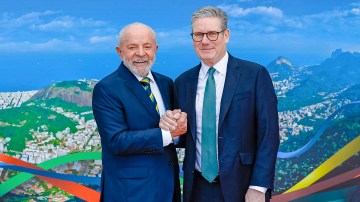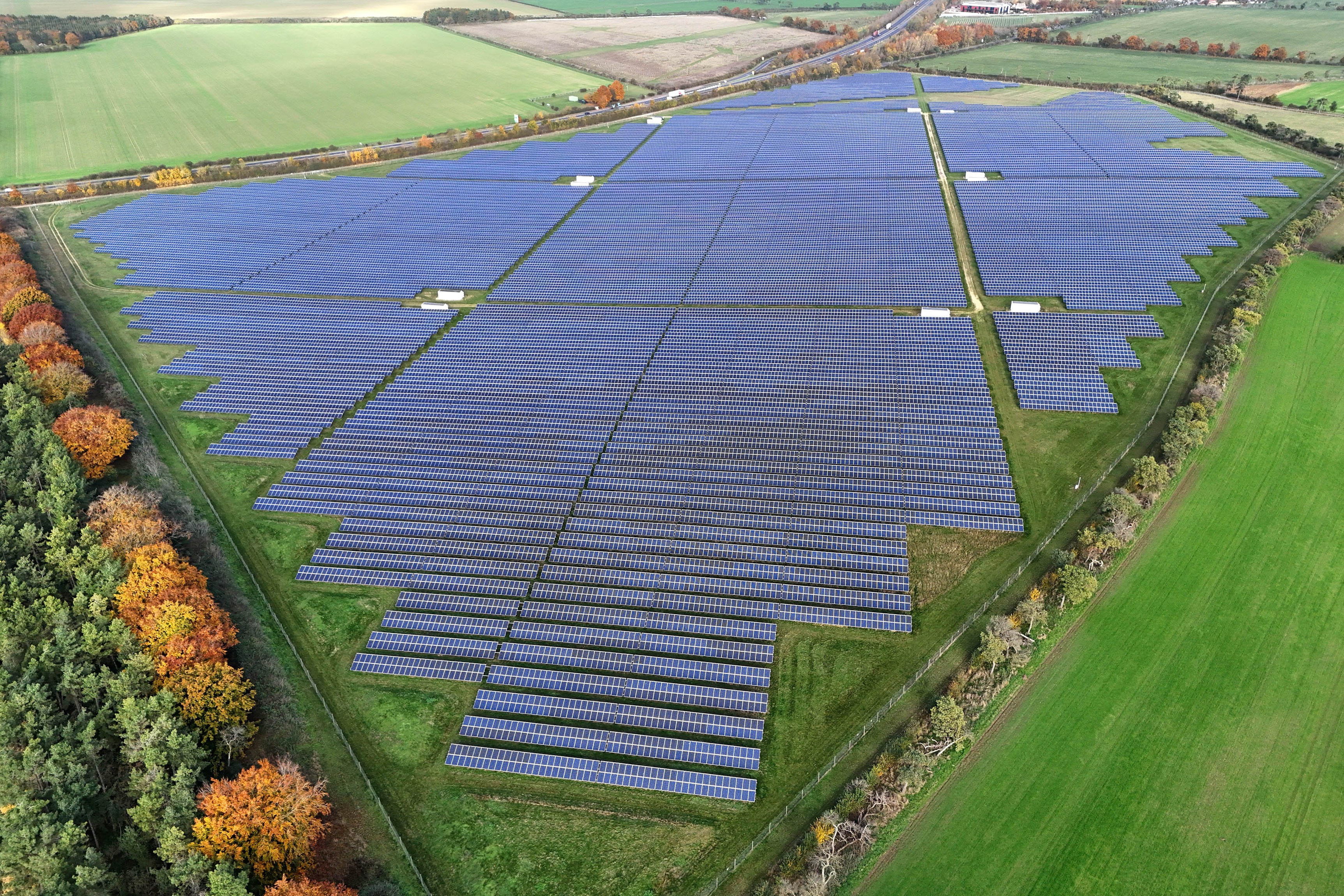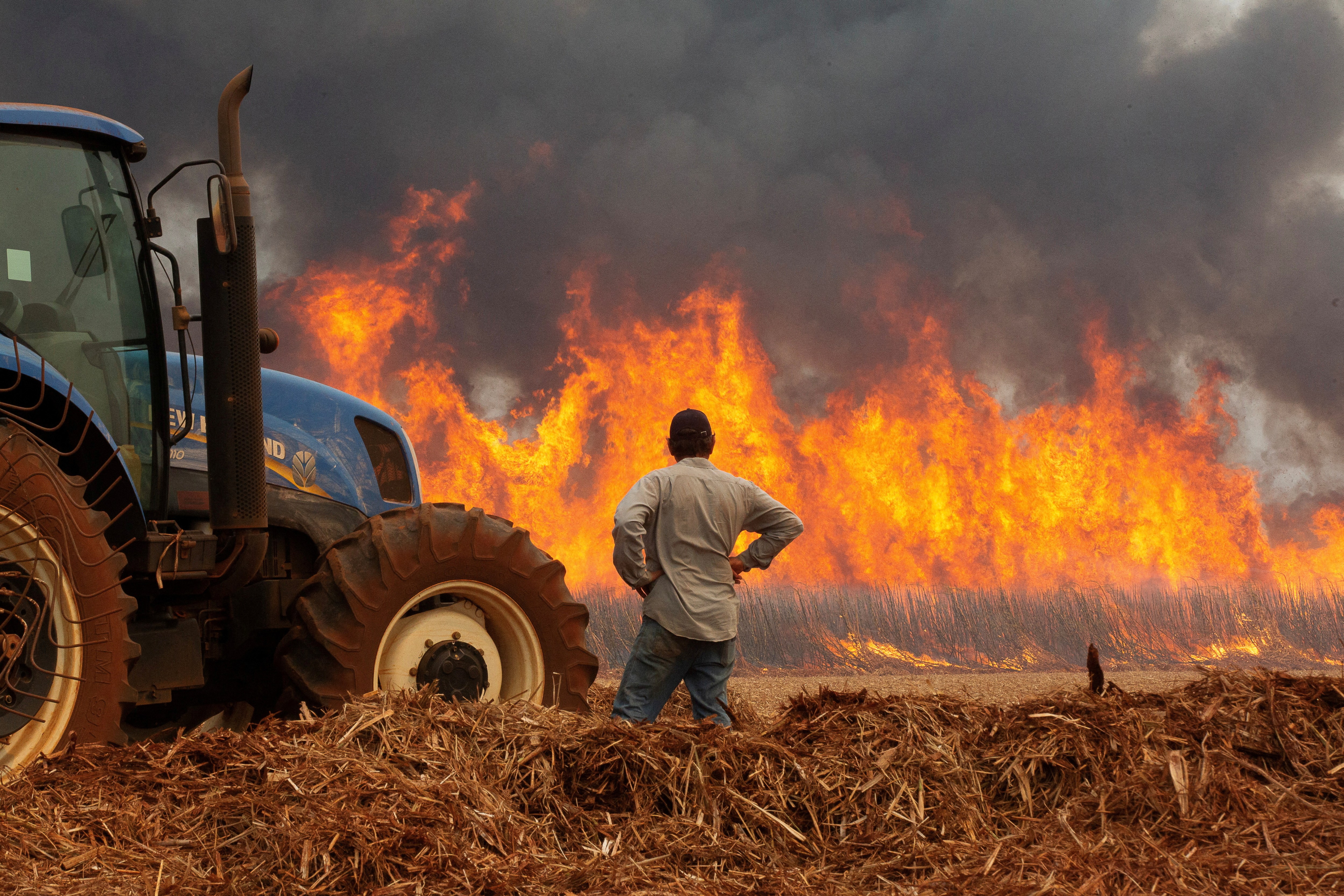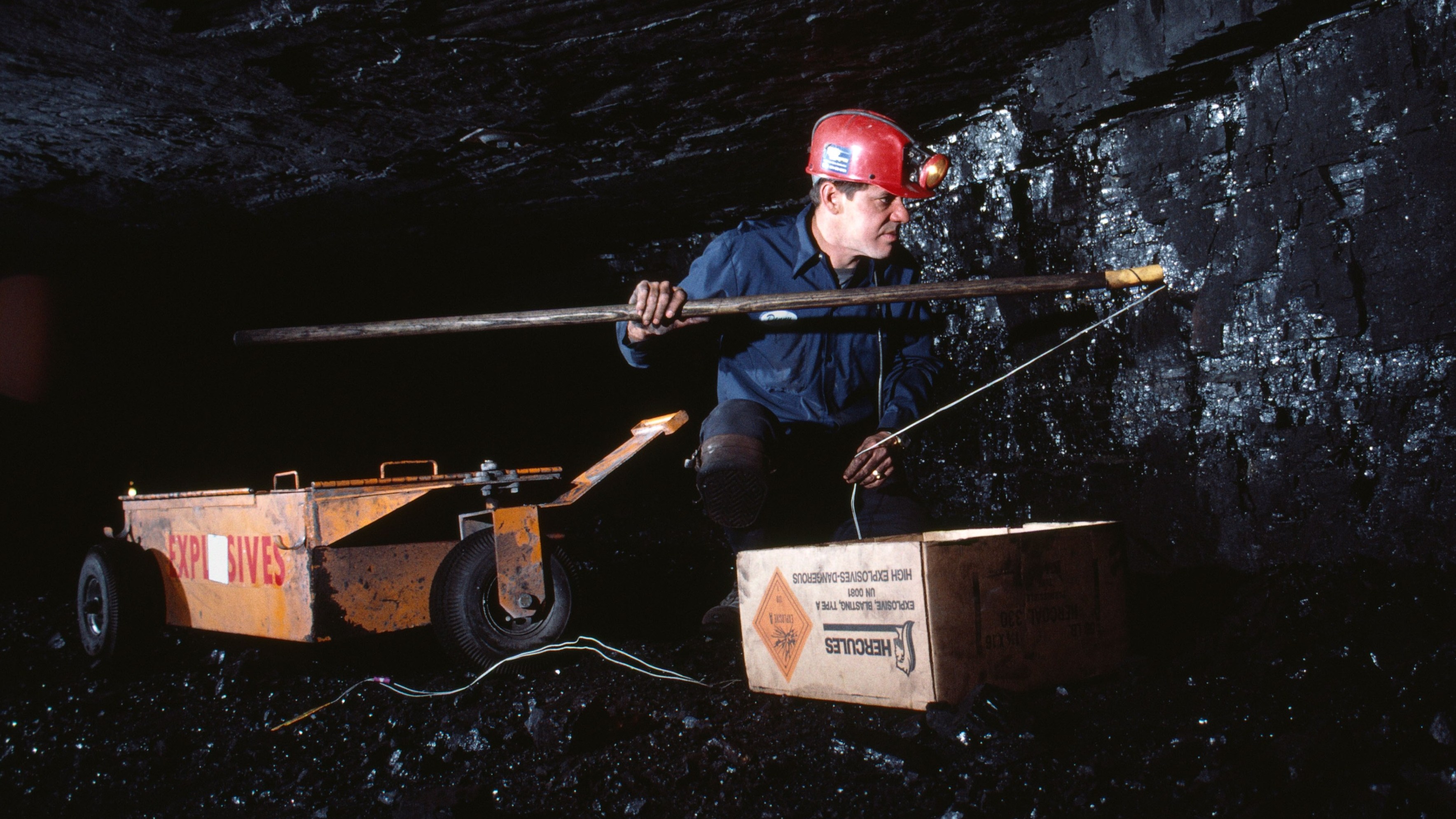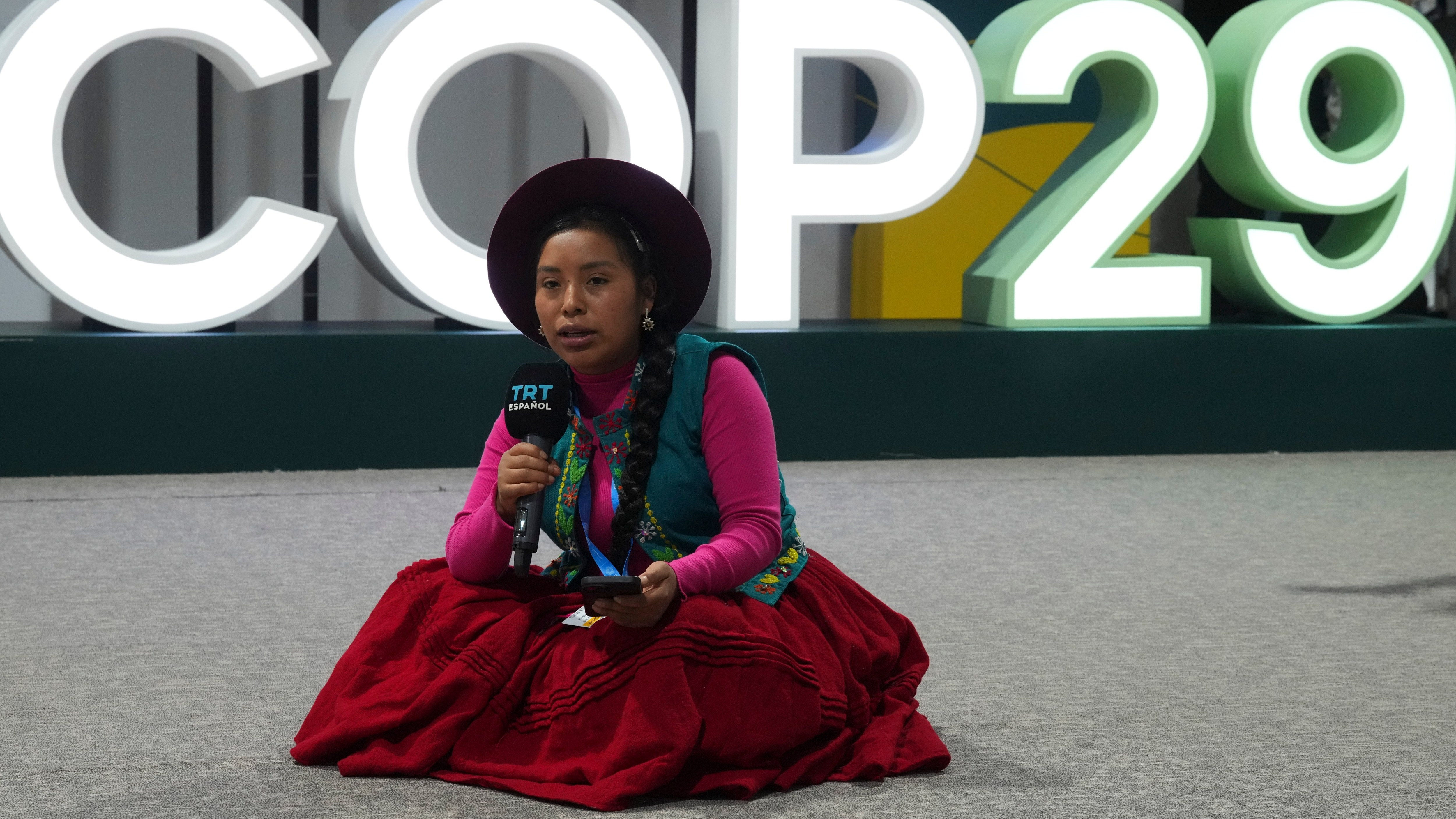Britain is to lead an international push to slash carbon emissions from power generation, Sir Keir Starmer has announced, as he admitted that the world was “off track” to meet climate targets.
As part of a major new initiative announced at the G20 summit in Brazil, the UK will work with up to a dozen countries to co-ordinate international efforts to triple global renewable energy capacity by 2030.
In a joint article for The Times with Lula da Silva, the president of Brazil, Starmer said that a clean power alliance would be a “bold” mission that could unlock billions of pounds of investment in renewable energy projects around the world.
They said that working together on the initiative showed the “deepening cooperation” between the Brazil and the UK — both of which have significant experience in decarbonising electricity supplies that could provide a model for others to follow.
“This is a huge opportunity — a chance to drive economic growth, create good jobs and create greater stability,” they wrote.
Advertisement
“The world needs more clean power to strengthen our energy security and crucially, tackle climate change.”
The plan involves using western government support and expertise to “unlock” private finance for developing countries on a “huge scale” that can be used to invest in large scale renewable energy projects.
So far countries including Canada, France and Germany have signed up to the initiative. However, in a sign of how the US’s position on climate initiatives are likely to change under President-elect Trump, the United States is not on the list of signatories, but it is listed as a “partner”. Labour has committed to eliminating carbon emissions from power generation altogether by 2030.
In their article, Starmer and Lula admitted that the world was not meeting its pledges to limit global warming.
“The fact remains that the world is off track to meet its climate targets. We must limit temperature rises to 1.5 degrees at most. We want to drive forward progress,” they wrote.
Advertisement
They said that the critical missing link in reaching the goal was finance and while there was up to £7 trillion of investment opportunities in clean power, getting that finance into projects was currently too difficult.
They pointed out that emerging markets and developing economies receive just 15 per cent of clean energy investments — a figure that the International Energy Agency says needs to rise sixfold by the early 2030s.
“Brazil is leading the way with its new investment platform to mobilise much greater flows of private capital into its climate transition projects. We want to help others to follow this model and dramatically scale up private sector investment,” they said.
Starmer said that he wanted other countries to benefit from the UK’s experience in decarbonising the grid.
“We want our clean energy ambitions to go global, so it is fantastic news that multiple other countries are now on board with the UK-led Global Clean Power Alliance.
Advertisement
“I will restore the UK’s role as a climate leader on the world stage — and this is a once-in-a-generation opportunity to make sure we face up to the climate crisis head-on.”
The announcement in Brazil will be seen as a boost to the talks at Cop29, which have made very slow progress on a new target for securing climate finance for developing countries.
The alliance may also help to encourage countries to put new green energy targets in their national climate plans.
The UN has a deadline of February 2025 for those plans. So far only the UK, UAE and Brazil, the host of next year’s Cop summit, have announced their updated carbon reduction targets.
Our goal is to triple clean energy capacity by 2030
The world needs more clean power — to strengthen our energy security and crucially, tackle climate change (write Sir Keir Starmer and Lula da Silva).
Advertisement
From floods and wildfires in Brazil, to record-breaking temperatures in the UK the impact of climate change is increasingly evident. Tackling it requires a global transition to clean energy.
This is a huge opportunity — a chance to drive economic growth, create good jobs and create greater stability at home and abroad.
The investment opportunities are massive too — almost $7 trillion across the world economy, across a wide range of technologies. Turbines and panels, harnessing the power of the wind and sun. Carbon capture, storage and utilisation. Clean hydrogen. Sustainable biofuels, which decarbonise transport sectors like aviation.
In the UK, we have a mission to achieve clean power by 2030. That’s why we have created Great British Energy, which will massively accelerate investment in renewables and clear away unnecessary planning blockages to vital energy infrastructure.
In Brazil, we already have 90 per cent clean and sustainable power, and 50 per cent of our whole energy matrix is renewable — well above the world-average — with long experience in biofuels. But we can still go further. Recently we launched the “Fuels of the Future” initiative, to accelerate clean power deployment in aviation, machinery. We are making progress by mixing ethanol with fossil fuels for hybrid cars, running on both electric power and biofuels.
Advertisement
We are proud to stand together as leaders in the fight against climate change. Yet the fact remains that the world is off track to meet its climate targets. We must limit temperature rises to 1.5 degrees at most. And so we want to drive forward progress, in three areas.
First, we need to be bold. Both Brazil and the UK announced new nationally-determined contributions at COP29 in Baku this month, setting out ambitious targets for cutting our greenhouse gas emissions. We urge other countries — particularly G20 economies, which account for about 80 per cent of global emissions — to come forward with the emissions cuts needed to get the world back on track.
Second, we need finance. Emerging markets and developing economies currently receive just 15% of clean energy investments. The International Energy Agency says this needs to rise sixfold by the early 2030s. Brazil is leading the way here with its new investment platform to mobilise much greater flows of private capital into its climate transition projects. We want to help others to follow this model and dramatically scale up private sector investment.
Third, we need alliances. Like-minded countries, working together around a common goal, can achieve great things. On Monday, Brazil spearheaded the creation of the Global Alliance Against Hunger and Poverty (GAAHP), which will marshal resources and technologies to help the most vulnerable people around the world. The UK was one of the first countries to come on board.
And on Tuesday, we launched the Global Clean Power Alliance (GCPA). This rallies countries from across the globe – developed and developing, north and south – around a clear goal: to help triple renewable energy capacity and double energy efficiency by 2030, as called for in the global stocktake of progress on the Paris agreement.
The GCPA will work on specific missions — starting with removing barriers to the finance that is essential for the clean energy transition.
We will support initiatives that enable developing countries to bring in the investment they need to realise their climate goals. And we will provide technical assistance to help countries build pipelines of projects that can attract private investment, helping to deliver good jobs, growth and prosperity, while cutting carbon emissions.
Both the GCPA and the GAAHP will continue to grow and deepen, and we are proud to be taking these first steps together at the G20 Summit in Rio this week. It shows the strength of the bonds between our two countries.
Next year we will celebrate 200 years of diplomatic relations between the UK and Brazil. That will be a moment not just to celebrate, but to go further in developing our cooperation.
After all, we share a great deal, not just a love of football, but a determination to make life better for working people, and to meet the worldwide challenges that increasingly reach into our lives.
That’s what is driving the steps we have taken this week, and what will fuel our ambition to work together more and more over the years to come.

